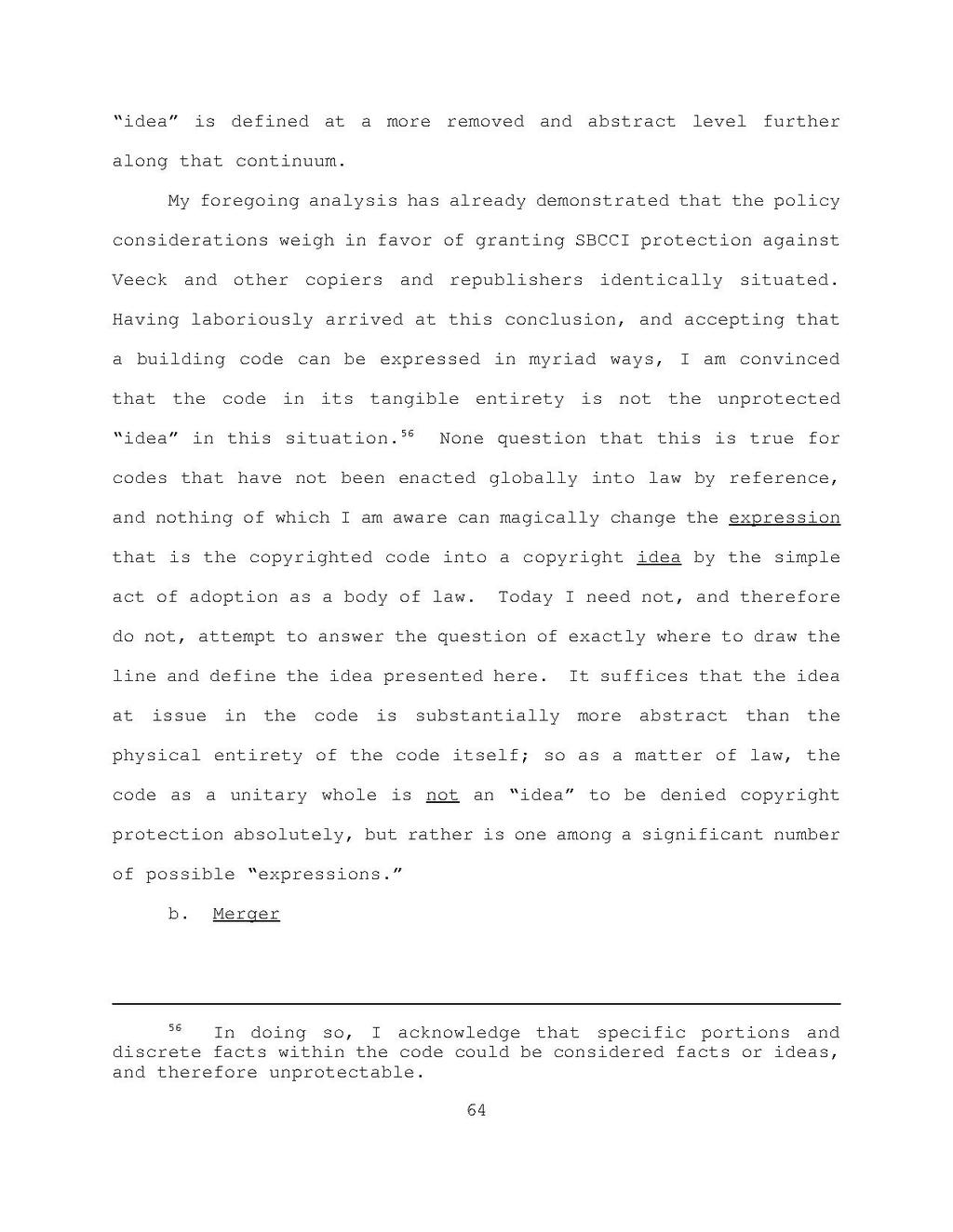"idea" is defined at a more removed and abstract level further along that continuum.
My foregoing analysis has already demonstrated that the policy considerations weigh in favor of granting SBCCI protection against Veeck and other copiers and republishers identically situated. Having laboriously arrived at this conclusion, and accepting that a building code can be expressed in myriad ways, I am convinced that the code in its tangible entirety is not the unprotected "idea" in this situation.[1] None question that this is true for codes that have not been enacted globally into law by reference, and nothing of which I am aware can magically change the expression that is the copyrighted code into a copyright idea by the simple act of adoption as a body of law. Today I need not, and therefore do not, attempt to answer the question of exactly where to draw the line and define the idea presented here. It suffices that the idea at issue in the code is substantially more abstract than the physical entirety of the code itself; so as a matter of law, the code as a unitary whole is not an "idea" to be denied copyright protection absolutely, but rather is one among a significant number of possible "expressions."
b. Merger
- ↑ In doing so, I acknowledge that specific portions and discrete facts within the code could be considered facts or ideas, and therefore unprotectable.
64
